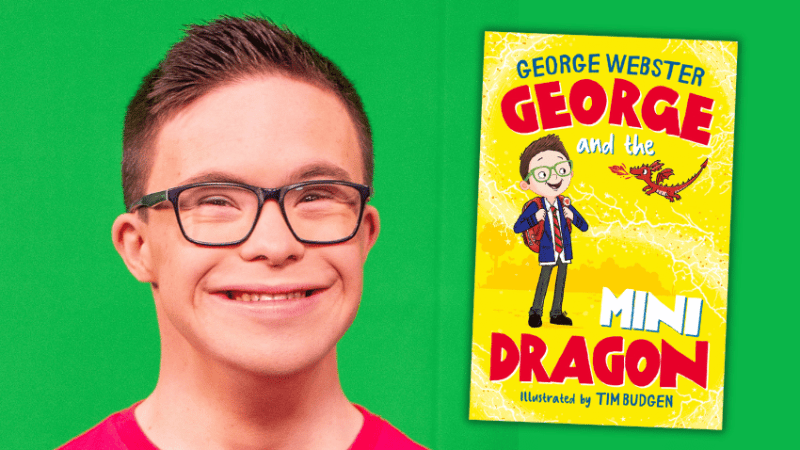Poetry in primary schools – why bother learning poems by heart?

Far from an old-fashioned pastime for the posh, committing verse to memory can open all sorts of doors for your pupils…

- by Julie Blake

The poet Andrew Motion and I were asked this question many times when we began working on the first national schools’ poetry speaking competition, and its associated poems and resources, for the Poetry By Heart website.
That was 10 years ago. For some of our critics, learning a poem by heart was an old-fashioned, posh practice. Long past its sell-by date, certainly in state schools.
Why learn a poem, especially an old one, when you could read, listen, or write your own?
And maybe even poetry itself was out of date. Wasn’t spoken word the thing now?
There were also doubts about whether children would have the capacity to learn a poem by heart. Especially since they have become habituated to finding what they needed when they need it on the web or social media.
And behind those suspicions there was misery about the prospect of tedious rote learning.
Would pupils be able to do it, want to do it, be prepared to do it? And what about their teachers? For some pupils, having to do poetry at all was bad enough.
Poets on poetry
From the beginning, the poets we listened to told us a different story. Most of them said that to have a poem in the memory, learned by heart, was a treasure to draw on throughout life.
Simon Armitage, the current Poet Laureate, put it this way: “The poems we learn when we’re young stay with us for the rest of our lives.
“They become embedded in our thinking, and when we bring them to mind, or to our lips, they remind us who we are as people, and the things we believe in.
“They become personal and invaluable, and what’s more they are free gifts – there for the taking.
“We call it ‘learning by heart’, and I think such learning can only make our hearts bigger and stronger.”
You can test this for yourself by thinking about some of the nursery rhymes, songs and poems you learned when young, and the way these keep you company still.
The poets we spoke to during our research, including Poetry By Heart’s judges, also reminded us that poems came to a more vivid and compelling life when spoken out loud.
And then there were ideas about poems and memory. Poet Alice Oswald told us that poems don’t just “go easily into the memory and stay there;” it works both ways: “The memory goes easily into a poem and grows there, perhaps infinitely.”
And, finally, the poets emphasised choice.
Children should have the opportunity to explore a range of poems for themselves and find those that are special to them; special enough for them to learn, special enough to have a place in their future memory.
Poetry By Heart has been guided by poets and their thinking.
These ideas shape every aspect of what we do. But how does it work in practice with teachers and pupils in schools?
After 10 years, here are some of the things we’ve learned:
Trending
Poetry out loud
By generating excitement about performing a poem, pupils get engaged in exploring verse to find their special one.
As they learn their chosen poem by heart, they start to notice and explore its language, develop personal connections, and eventually start wanting to read more.
Many of the pupils at headteacher Rowena Kaminski’s small rural primary school in Shropshire arrived with significant literacy challenges.
Rowena saw Poetry By Heart as a focus for changing this. After their first year, she described the impact on literacy: “Introducing more poetry into our school day has, without a doubt, helped to develop early literacy skills.
“Poetry has also enabled conversations and confidence around terms such as similes and metaphors. It has enabled our children to develop a love for literacy.”
Poems for kids
When we started our programme at the school, some people said only the ‘most able’ pupils would be able to do it.
We never believed that and it’s the opposite of what Rowena told us after they’d tried it.
She reported: “Poetry is very manageable for our children, who are generally ‘put off’ by huge chunks of text.
“We have a lot of children for whom English is an additional language (EAL) and children with speech and language difficulties. So, being such a small amount of writing, poetry is less intimidating.
“It has been wonderful to see Polish children in our community recite poems in English that they have learned by heart.”
Performance poetry
By performing in pairs or groups to start with, pupils quickly overcome any initial nerves. The process has great benefits to their self-esteem.
Rowena reflected on poetry as a safe space. “Children feel safe that there are no right or wrong answers when discussing their responses to a poem.
“For emotional support, poetry has provided an opportunity for them to explore their personal experiences and to write about themselves and their feelings.”
Learning poems by heart is all about developing confidence in an enjoyable, accessible and engaging way.
You can sign up to Poetry By Heart if you’d like some help with the process.
Ultimately, the power is in your hands. Help your pupils thrive and learn to love poems by sharing them – and learning them – together.
5 free poetry resources
- Poetry By Heart 7+ timeline
Time travel across the centuries with this poetry resource for pupils aged 7-11. It offers biographies of poets, starter activities and video and audio performances. Use the filters to find short poems, funny poems, or poems about adventure and family. poetrybyheart.org.uk/ks2-timeline - Children’s Poetry Archive
A treasure trove of recordings of poets reading their poems. Explore curated collections like Exploring Planet Earth or Hopes and Dreams. Listen to interviews with fantastic contemporary children’s poets. There are great teaching resources too. childrens.poetryarchive.org - Poetry By Heart Mix It Up collection
A fun and colourful way for children to explore poems to find ones they like. Hover on a picture tile to see the poem’s title, click to read a juicy snippet and then dive into the poem. Hit the Mix it Up button to see why it gets its name. poetrybyheart.org.uk/poetry-for-children - CLPE Poetry
A phenomenal collection of poems, often with videos, by the best contemporary children’s poets from A.F. Harrold to Zaro Weil by way of Joseph Coelho and Kate Wakeling. Sort by year group or poem theme to find your perfect poem. clpe.org.uk/poetry - Poetry By Heart Poem of the Week email
A poem in your inbox every week in term time to share aloud with your class. Read for pleasure and enjoyment then go further with a fun activity to help pupils explore the sounds, shapes and meaning of the poem. mailchi.mp/poetrybyheart/poemoftheweek
Julie Blake is co-founder and director of Poetry By Heart. She is also a former FE teacher and university tutor. Poetry By Heart is funded with the support of the Department for Education. Follow along on Twitter @poetrybyheart







